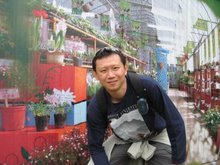A critical Chapter indeed to read...Key points:
- important to design learning environment to meet changing goals
- 4 types or domains of Learning Environment: Learner-centred, Knowledge-centred, Assessment-centred and Community-centred
- in reality, Learning environment exist in different degrees of the 4 types.
- these domains are interconnected and mutually support one another
- the authors advocate alignment of the 4 domains of Learning Environment to know what is being learned
- As resources (time and manpower included) are limited, it would always be challenging to devote time to review and improve on Learning environment to effect timely and optimal change.
- Any degree or combination of the 4 domains towards a particular learning environment eg. Learner centred, would have its disadvantages.
- Even as teachers make effort to design the best Learning Environment for his class, there would always be pupils who are disadvantaged because of their different dispositions in learning styles and world view.
- Teacher should always try to meet the different needs of their pupils and do his best to adjust the Learning Environment to maximise learning for as many pupils a possible. Yet, this does not mean neglecting the few.
- Change is necessary because of changing goals of educaton. The good news is that educational goals does not change too fast for schools to adjust and cope.

